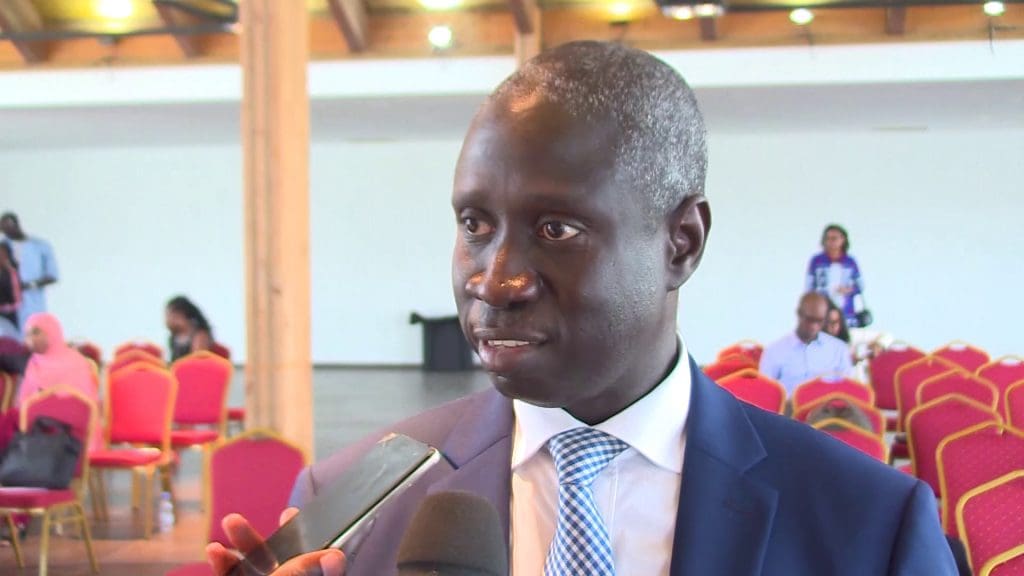Africa’s new open free trade area has the potential to generate jobs and inspire growth in service markets, according to Ibrahima Nour Eddine Diagne, President of the African Performance Institute.
The African Continental Free Trade Area (AfCFTA) is an ambitious endeavour that should transform all the economies on the continent. It will open new frontiers of opportunities and position Africa as a force to be reckoned with in the global economy. Liberalizing trade in goods is typically portrayed as the main aspect of the agreement. Trade in services tend to be of secondary importance in the eyes of observers who are not experts in the issue. In truth, since trade in services does not face the same obstacles as trade in goods, it is often subject to different considerations; notably it depends to a great extent on issues associated with regulations. The digital economy, which mostly involves services, is probably the greatest source of opportunities for Africa and its young people.
The digital economy, which mostly involves services, is probably the greatest source of opportunities for Africa and its young people.
The current context of multilateralism must not lead Africa to impose market conditions that are incompatible with its ambition to make digital trade a main factor in its development.
The digital economy constitutes an instrument for accelerating and amplifying job creation possibilities for young people in the continent. This essentially hinges on five factors: skills, markets, regulations, cost competitiveness and availability of infrastructure and support services. In-demand skills are determined by international standards.
The capacity to deliver training that meets these standards on the continent will enable young people to apply their skills in the African market and beyond it. Emphasis must also be placed on innovation and business incubators, firstly to bring solutions to the specific issues of the continent and secondly to give young people a framework within which to express their ideas and test their capacities. Integrating international markets is a delicate issue thanks to the issue of regulation. Bold regulations must be implemented that favour the birth and emergence of African digital giants without infringing on the rules of multilateralism.
Effectively, the universal nature of regulations is often linked to the political weight of the countries proposing or imposing them. The current context of multilateralism, characterized by tensions over trade rules, must not lead Africa to impose market conditions that are incompatible with its ambition to make digital trade the main driver in its development. It is therefore urgent to work with African experts who are qualified to define the regulatory strategy for the continent, which must be compatible with the ambitions of the AfCFTA.
Concerning competitiveness, this will depend on the costs of financial services, logistics, energy, telecommunications, taxation and so on. All of these factors will impact heavily on the competitiveness of what the African digital landscape has to offer. There are national or regional regulations for each of these sectors.
However, investment strategies to enhance the quality and reduce the costs of these services are not keeping pace with the continent’s ambition for development. Between operators’ willingness to maximize their profits and countries’ weak negotiating capabilities, there is almost no room for private African players to gain a foothold in these sectors. Undoubtedly, it is by addressing these factors that support services and infrastructure will be available in quantity and quality, enabling young people to profit fully from the digital economy within the context of the AfCFTA.
Now the fundamental question is how young people might benefit from this market. There are a number of possibilities open to them, including salaried jobs and launching start-ups, perhaps as exporters of digital services. Success in each of these areas will require concerted efforts from the private sector, government and the academic community. The digital economy must be widely introduced across all training courses and at all levels. It is also necessary to innovate, by implementing certification programmes based on new needs and new technologies.
This will enable the continent to meet not only its own needs but also international demand. Governments must create conditions for the emergence of very large African digital undertakings. This can be achieved through appropriate regulation; promotion of industrialization, specifically in the digital economy; a taxation policy favouring intracommunity trade; and promoting investment in such a way that costs are reduced and availability and performance are improved. The African private sector must commit to digital transformation to benefit from opportunities that will be generated by the AfCFTA. Existing undertakings must not be weakened or they will put the continent in a situation where the potential in terms of job creation will be negated by job losses.
The dream of a prosperous Africa is within reach. It is a promise for young Africans, who must be active stakeholders in the process as decisions being taken today will determine what kind of world they will live in. They will have to take the trouble to understand the issues facing them to better articulate their needs and, above all, prepare themselves for this great meeting that must exclusively serve their interests.
The poverty that leads to great tragedies as a result of perilous migrant adventures must progressively give way to an Africa of opportunities that will retain its best and brightest.
IND/as/Dng/APA


